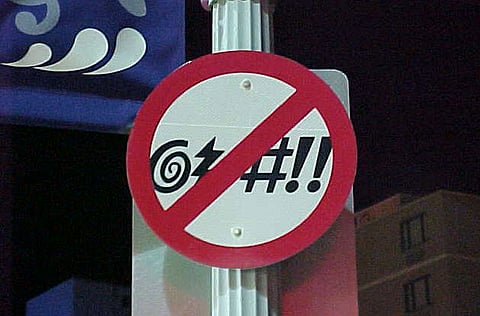Need a painkiller? Try cursing...
A volley of foul language could actually work as an anaesthetic for injured

London: Swearing actually helps relieve pain, especially after you have hurt yourself, according to scientists.
Scientists from Keele University in Britain found that letting forth a volley of foul language can have a powerful pain killing effect, especially for people who do not normally use expletives.
To test the theory, student volunteers placed their hands in a bucket of ice cold water while swearing repeatedly.
They then repeated the exercise but, instead of swearing, repeated a harmless phrase instead. Researchers found that the students were able to keep their hands submerged in the icy water for longer when repeating the swear word, establishing a link between swearing and an increase in pain tolerance, the Telegraph reported.
They found that the pain-numbing effect was four times more likely to work in the volunteers who did not normally use bad language. Richard Stephens, who worked on the project, said: "Swearing has been around for centuries and is an almost universal human linguistic phenomenon. It taps into emotional brain centres and appears to arise in the right brain, whereas most language production occurs in the left cerebral hemisphere of the brain."
The team believes the pain-lessening effect occurs because swearing triggers the "fight or flight" response.



